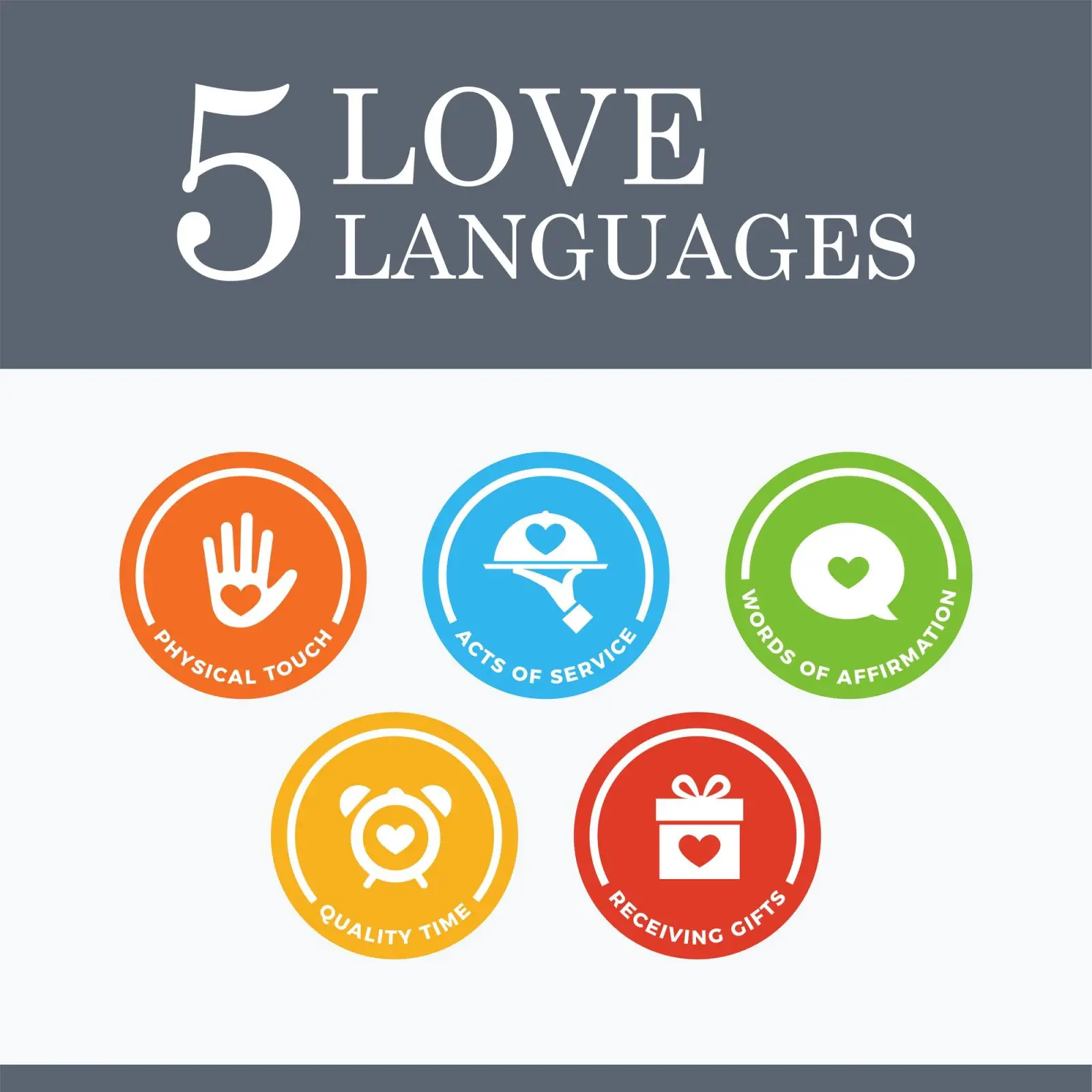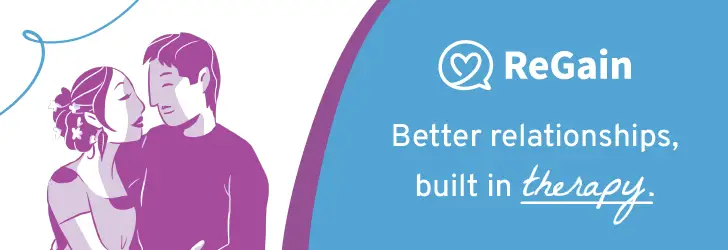As a BetterHelp affiliate, we receive compensation from BetterHelp if you purchase products or services through the links provided
To uncover the secret to maintaining long-term relationships, we’ve gathered ten game-changing advice from experts, including a marriage and family therapist and a dating and relationship coach. From the importance of dating your partner to acknowledging love’s messiness, these insights offer a comprehensive guide to nurturing your relationships for the long haul.
- Keep Dating Your Partner
- Embrace Difficult Conversations
- Understand Yourself Better
- Maintain Friendship and Romance
- Resolve Conflicts Respectfully
- Stay Curious About Your Partner
- Develop Emotional Agility
- Preserve Your Independence
- Create a Relationship Vision Board
- Acknowledge Love’s Messiness
 1. Keep Dating Your Partner
1. Keep Dating Your Partner
One game-changing advice I can offer to maintain long-term relationships is simple: keep dating your partner. If you’ve ever heard the saying, “You have to keep doing what you got to keep them,” it’s true.
When you first meet someone, you flirt with them, get to know them, and do little things to make them smile. If you want to maintain a long-term relationship, you continue. You keep flirting, keep courting, and continue deepening your connection. If you keep doing the little things that made them smile initially, you’ll keep them smiling until the end.
Azia Carter, Marriage and Family Therapist, Dwellness In-Home Psychological Services
2. Embrace Difficult Conversations
The ability to talk about all topics is crucial, even difficult ones like sex, money, and personal insecurities. Many couples get stuck here because one or all people are conflict-avoidant or feel unsure of how to express things in a way that won’t hurt their partner’s feelings.
However, avoiding hard conversations is like sweeping things under the rug and hoping you won’t trip over it later! Spoiler alert: you will! Therefore, developing tolerance for discomfort and facing these significant conversations, as well as learning new communication skills, is the biggest needle-mover for the health of a relationship.
Gaby Balsells, Relationship Coach, Modern Intimacy
3. Understand Yourself Better
Understanding yourself better is a good first step to maintaining long-term relationships successfully. Identifying your core values and beliefs about the world and others will help you learn about the kind of people you will choose to surround yourself with and spend your energy on.
Recognizing and identifying your triggers, strengthening your communication skills, and establishing boundaries will help teach the other person(s) involved what your needs are and how to meet them. Relationships are not a competition; they require teamwork to succeed and work.
Danielle Foox, Licensed Mental Health Counselor, Mindfully Me Mental Health Counseling P.C.
4. Maintain Friendship and Romance
Maintain your friendship and your romantic spark. Both of these require regular, conscious effort. Stay connected to each other’s worlds, share your emotions, and confide in each other. Make time for date nights, take regular overnight trips or vacations without kids, and make your partner feel like they’re always on your mind.
Payton Holt, LMFT, Clinical Director, The Marriage and Family Clinic
5. Resolve Conflicts Respectfully
Conflict is inevitable in any relationship. It can escalate into contention that damages your relationship or strengthen it as you each gain a deeper understanding and appreciation for the other.
The key is to resolve the conflict with respect. Respect allows you to remember that everyone has a voice and you can support each other. Resolving a conflict takes time; it requires patience, empathy, and collaboration. Take time to find a win-win solution that everyone can accept.
Emmalou Penrod, Family Relationship Coach, Healing Your Families
 6. Stay Curious About Your Partner
6. Stay Curious About Your Partner
One tip I’d give anyone in a long-term relationship is to stop assuming you know everything about your partner. Instead, treat every date as an opportunity to get to know them again—their politics, life goals, and thoughts on their career. These all change over time, so we must remain curious because your partner won’t be the same person you met all that time ago, and neither will you.
Curiosity shows your partner that you’re interested in getting to know every version of them rather than presuming you know everything already. This allows your partner to feel seen and valued as an individual rather than just as one part of the “we.” Keeping that sense of individualism is vital for a thriving relationship.
How can we action this? We hear frequently that we should have a weekly date night with our partner, but I challenge you to go a little deeper and ask them some questions like, “What’s been on your mind lately?”, “What is something I don’t know about you yet?”
Jessica Stephenson-Clarke, NLP Master Practitioner, ARVRA Wellness
7. Develop Emotional Agility
I believe the key to maintaining long-term relationships is what I’d call “emotional agility.” It’s navigating and leveraging your and your partner’s emotions to build mutual understanding and growth.
In practice, you will often find couples clashing due to misinterpreted emotions. But when they learn to articulate their feelings better, it allows for more empathy, making it easier to communicate and adapt.
Bayu Prihandito, Certified Psychology Expert, Life Coach, Founder, Life Architekture
8. Preserve Your Independence
Maintaining your independence is something you should strive for with having a healthy, long-term relationship. When you start to rely more and more on your partner and lose some of your independence, it can be emotionally exhausting for them. It often means you spend all of your time together, which is only sometimes as healthy as we might think. You start to lose who you are at your core and can end up in meaningless arguments more often.
It helps to have your friends, independent of your relationship, and to find things you enjoy even if your partner doesn’t partake in them. It helps to strengthen a relationship; at the end of the day, you have more to discuss and other passions to pursue.
Kristie Tse, Founder, Uncover Counseling
9. Create a Relationship Vision Board
One game-changing piece of advice for maintaining long-term relationships is to create a Relationship Vision Board. This is a creative activity to discuss and visualize your goals and dreams for the future.
By collaborating on this board, you reinforce your commitment to your relationship and keep your mutual aspirations at the forefront of your minds. Displaying it in your home constantly reminds you of your journey together, fostering connection and motivation to work towards those goals.
Nooran Zafarmand, Co-Founder, Japamana
10. Acknowledge Love’s Messiness
For maintaining healthy, real, long-term relationships, it is essential to remember that real love is messy; it will not be all roses. Stop falling for “fairytale love” and the perspective that “real love will feel easy.”
Authentic love involves vulnerability and a willingness to have tough conversations about finances, past trauma, fears, regrets, and dreams. This will only sometimes feel good, but it’s essential. I see so many couples thinking that there is a problem with their relationship because they have disagreements and conflicts.
Conflicts are part of a healthy relationship. They are uncomfortable, but they’re also inevitable. They allow you to understand your needs better and learn more about the inner workings of other people’s needs. When we avoid conflicts, we avoid opening ourselves to deeper levels of safety and intimacy. You contribute to the lack of safety in your relationships when you consistently avoid conflict.
Soni Pelty, Dating and Relationship Coach, Limitless Love With Soni
 Unlocking the Secrets of Everlasting Love: A Holistic Guide to Nurturing Long-Term Relationships from the Experts
Unlocking the Secrets of Everlasting Love: A Holistic Guide to Nurturing Long-Term Relationships from the Experts
Wow, what a treasure trove of insights! These experts have dished out some seriously thoughtful advice on maintaining long-term relationships. Each one touches on an essential aspect many might overlook or not fully understand.
Keep Dating Your Partner
Azia Carter’s point about continuously dating your partner to keep that initial spark alive is spot-on. It’s like keeping a fire burning; you’ve got to add logs and stoke it from time to time.
Pro Tip: Surprise them with little gifts or plan spontaneous weekend getaways. Keep them on their toes in a good way!
Embrace Difficult Conversations
Gaby Balsells nailed the significance of open, honest communication. Conversations about sensitive topics can feel like walking on eggshells, but avoiding them is far worse in the long run.
Quick Guide:
- Choose a quiet, distraction-free environment
- Use “I” statements to avoid sounding accusatory
- Listen actively to your partner’s views
Understand Yourself Better
As Danielle Foox mentioned, self-awareness is not just a buzzword but a foundational skill. Before you understand another person, you need to understand yourself.
Think About:
- Your values
- Your non-negotiables in a relationship
- Your coping mechanisms when you’re stressed
Maintain Friendship and Romance
Payton Holt’s advice about maintaining friendship and romance shouldn’t be underestimated. It’s like having the best of both worlds.
Resolve Conflicts Respectfully
Emmalou Penrod is right—conflict is inevitable, but destructive conflict isn’t. Respect is the lifeblood of any healthy relationship.
Stay Curious About Your Partner
Jessica Stephenson-Clarke reminds us that people evolve. Staying curious about your partner is like opening a new chapter in a never-ending story.
Develop Emotional Agility
Bayu Prihandito’s concept of “emotional agility” is a game-changer. Being agile emotionally means adapting and navigating any positive and negative situation.
Preserve Your Independence
Kristie Tse brings a fresh perspective by emphasizing the importance of maintaining your individuality, even in a close-knit relationship.
Create a Relationship Vision Board
Nooran Zafarmand gives a creative yet highly functional tip. Making a vision board isn’t just arts and crafts; it’s a visualization of your shared dreams.
Acknowledge Love’s Messiness
Last but not least, Soni Pelty tells it like it is: love isn’t always neat or convenient. Embracing the messiness makes the journey more authentic and meaningful.
These ten insights offer a well-rounded approach to stabilizing a long-term relationship. They provide actionable tips, food for thought, and soul-searching prompts that anyone aiming for a forever kind of love should seriously consider. Relationships are complex but can also be extraordinarily rewarding with dedication and mutual understanding.
The Love Doctor’s Corner: Decoding When to Seek Therapy & The Duet vs. Solo Dilemma
Navigating the landscape of long-term relationships often requires more than love letters and date nights. Sometimes, it demands professional guidance. Wondering if therapy could help you and your partner grow together? Here are some telltale signs that it might be time to consider therapy and some insights on whether to take this journey alone or hand-in-hand.
Signs You May Need Therapy
- Constant Conflict: If you find yourselves caught in a loop of never resolving arguments, that’s a sign.
- Avoiding Tough Conversations: Continually sidestepping issues like finances, plans, or family dynamics? Time to tackle them head-on.
- Feeling Disconnected: If you or your partner feels emotionally distant despite best efforts to connect.
- Unresolved Baggage: If you have unresolved issues such as trauma, emotional difficulties, or past relationship scars that seem to interfere with your current relationship.
- Changes in Intimacy: A significant drop in physical or emotional intimacy that doesn’t seem to be tied to a temporary situation like stress or illness.
 Going Together vs. Going Solo
Going Together vs. Going Solo
Go Together When:
- The issues involve both of you, like communication problems or disagreements about key aspects of your relationship.
- You both are open to the process and willing to work collectively to improve the relationship.
- There’s a specific issue affecting the relationship that you both acknowledge and want to work on, like coping with external stressors that affect your lives as a couple.
Go Solo When:
- You feel you have personal issues you’d like to resolve before addressing relationship concerns.
- Your partner is unwilling to participate or isn’t open to therapy.
- You realize a specific issue affects your part in the relationship and want to work on that first to become a better partner.
Therapy isn’t an admission of failure; it’s more like tuning a musical instrument. Over time, any relationship can go out of tune, and therapy can help get things harmonized again. Whether you go together or individually depends on what you feel is the best route to understanding, growth, and lasting love.
Dr. Priya Narayan, Couples Therapist and Psychologist, Heartfelt Therapy Services
Aiming for the Stars: Setting Tangible Goals for Relationship Therapy
Whether you’re venturing into therapy as a dynamic duo or going it solo, setting specific, achievable goals is crucial. Here’s how you can fine-tune your aims:
- Clarify Your ‘Why’: The first session is an excellent time to articulate what drew you to therapy. Is it communication issues, trust, or something else? Knowing your ‘why’ can act as your North Star.
- Be SMART: Make your goals Specific, Measurable, Achievable, Relevant, and Time-bound. For instance, instead of saying, “We want to communicate better,” try “We aim to resolve conflicts within 24 hours and without raising our voices.”
- Prioritize: You can’t tackle everything at once. Choose two or three key issues and focus on them.
- Track Small Wins: Sometimes, progress is incremental. Celebrate the small victories to fuel your journey.
By hashing out these goals, you’re not just aimlessly venturing into the therapeutic process; you’re undertaking a directed journey toward a healthier, happier relationship.
 Move beyond pain and confusion together.
Move beyond pain and confusion together.
The Milestones: How to Recognize Progress in Relationship Therapy
Tracking progress in therapy isn’t like clocking your speed on a treadmill. It’s nuanced, often emotional, and deeply personal. But here are some indicators that you’re on the right path:
- Improved Communication: If you find it easier to talk about difficult topics without hitting an emotional wall, give yourselves a pat on the back.
- Reduced Frequency of Conflicts: Arguments may not disappear, but if they’re becoming less frequent or less intense, that’s progress.
- Stronger Emotional Connection: Feeling more emotionally secure with your partner is a key sign of growth.
- Increased Mutual Respect: You’re doing something right if you notice more understanding and less contempt in your exchanges.
- Feelings of Empowerment: As you work on your issues, you should start feeling more empowered individually and as a couple.
The road to a fortified relationship isn’t a straight path, but the milestones make the journey worth it. Recognizing these signs helps you recalibrate your efforts and motivates you to continue this important work.
About Jacob Maslow
After surviving the traumatizing events of 9/11, I took it upon myself to heal through helping others. I’m the primary caregiver of my children and understand from first-hand experience the lonely paths you have to walk as a partner and parent when leaving an unhealthy relationship.
We’re all echoing in a dark space that doesn’t have to be this empty, and that’s been my mission since finding solace and recovery in therapy: To help comfort others who are still in shock and at the prime of their struggle.
I came across BetterHelp after searching for this type of community. I wanted to belong to a body of proactive therapists and supportive therapy veterans that allowed me to see other sides of the story.
It was unconventional, and that’s what attracted me most. During my most challenging times, when my ex-wife completely cut me off from my children, I found comfort and clarity through BetterHelp.
Instead of being chained to a strict therapist recommendation, I was in charge of who I felt understood my struggle most. That allowed me to find my true peace, as I was reunited with those who read behind my words and had first-hand experience with my trauma.
Recovery is a choice; with BetterHelp, that choice will be a few clicks away. You can join their couples-oriented platform, Regain.us for those stuck with family estrangement and toxic relationship patterns.
- Stress Management: What is the Relationship Between Stress and Addiction? - June 28, 2024
- Exploring Techniques to Maintain a Healthy Lifestyle without Drugs - May 28, 2024
- How Acupuncture Helps Treat Chronic Fatigue Syndrome - May 28, 2024
This site contains affiliate links to products. We will receive a commission for purchases made through these links.


 1. Keep Dating Your Partner
1. Keep Dating Your Partner 6. Stay Curious About Your Partner
6. Stay Curious About Your Partner Unlocking the Secrets of Everlasting Love: A Holistic Guide to Nurturing Long-Term Relationships from the Experts
Unlocking the Secrets of Everlasting Love: A Holistic Guide to Nurturing Long-Term Relationships from the Experts
 Going Together vs. Going Solo
Going Together vs. Going Solo


